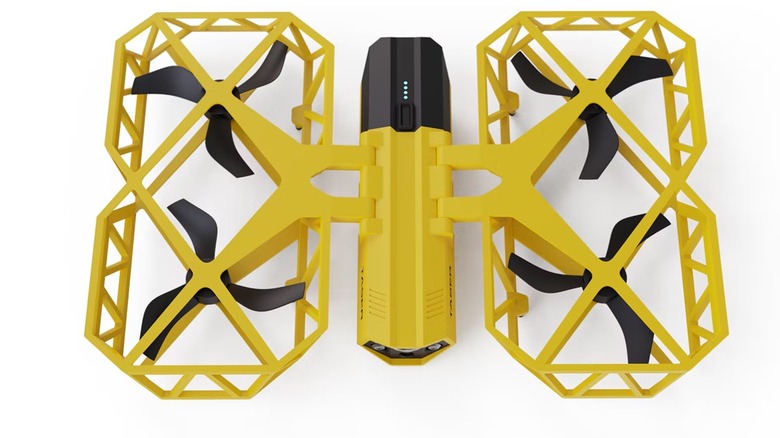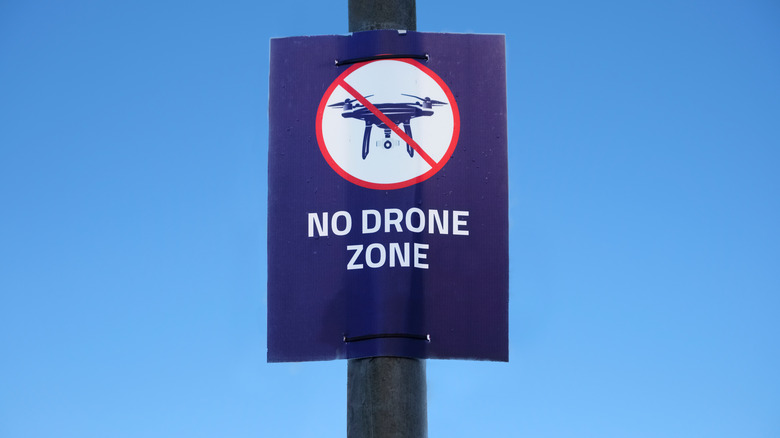The Reason Why This Drone Concept Is So Controversial
Some drone concepts sound good on paper, while others are so bad that it can even cost a company its board members. With drone usage becoming more prevalent, it's only natural for companies to consider using them for delivering packages. However, one company tries to up the ante by utilizing them as law enforcers, and inside school campuses. Axon, a company that produces energy weapons and security cameras, proposed a taser drone design in light of the Uvalde school shooting. These drones would be installed inside campuses and would "play the same role" as sprinklers in times of emergencies.
Of course, this announcement also caused nine members of Axon's ethics board to walk away from the company, according to the Associated Press. The ex-board members expressed various concerns, not only about the drone concept's potentially dangerous implementation but also about the exploitative nature of the announcement's timing. Some might be wondering, are drones designed to protect students such a bad idea? Regardless of personal opinion, there are many negative outcomes that can stem from such a predicament.
The aftermath of weaponized drones can be shocking
Commercial drones with cameras already have a tendency to pose risks to privacy. Drones carrying weapons, on the other hand, can lead to even greater threats, especially when it falls into the wrong hands. The thing is, drones are very much susceptible to doing just that through hacking (via Ars Technica). With a modified radio transmitter, hackers can not only use spoofed frequencies to hijack a drone, but they can also lock out its original owner from using it. What makes matters worse is that hackers can do this from as far as a mile away, according to Forbes.
Aside from commercial drones, even more advanced police drones were reportedly just as vulnerable to such attacks. These types of exploits effectively give hackers full control, and when it comes to taser drones, this is as bad as handing potential criminals weapons on a silver platter. In addition, one can't also rule out the possibility of taser drone abuse by the controllers themselves. AP reported that Axon's ethics board unanimously urged the company not to introduce weaponized drones to communities of color that are already "over-policed." Needless to say, adding taser drones into the mix can only complicate things more than they should.
How dangerous are weaponized taser drones, exactly?
Axon CEO Rick Smith did suggest a rigorous oversight committee that closely monitors the activity of its taser drones, but should this route be taken in the first place or is there a better way? While tasers might be presented as non-lethal solutions, they still led to almost 40 fatalities in one year alone. The problem isn't just in the controversial drone concept itself though, it also has to do with how it's integrated within school grounds. In the case of the Uvalde school shooting, lack of ample firepower wasn't the issue, but rather, among them was the local authority's slow response time (via The Washington Post).
That said, one can only imagine the damage that would ensue if hacked taser drones run amok from inside school premises while officers outside remain oblivious of the havoc they're wreaking. Considering how something can turn on the very students they're designed to protect doesn't exactly paint taser drones a very pretty picture. Although drones with cameras are already problematic in their own right, perhaps it's still better to limit them to using lenses instead of shock batons.


